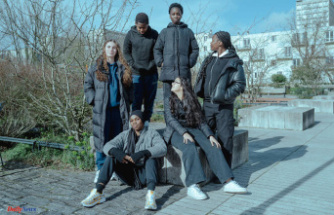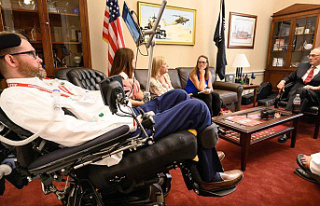The deal was filed in federal court Thursday. Ann Arbor School will pay for a multidisciplinary standing commission to prevent and combat sexual abuse.
The Coordinated Community Response Team is composed of approximately 30 members. This includes Title IX and campus sexual assault experts, community members, and select faculty and administration members.
Nancy Cantalupo is an assistant professor at Wayne State University. They will all be able to sit at the same table as the experts on the CCRT.
Cantalupo stated that this will allow them to communicate their concerns and needs directly to the administration and the higher levels of the administration.
The school was rocked by sexual assault allegations. These were made public by hundreds of men in 2020. They claimed that the late Robert Anderson, who was a Michigan campus doctor for nearly 40 years, had sexually assaulted them. In 2008, he died. The school announced in January a $490million settlement with Anderson's accusers. This was separate from the class-action suit brought against Josephine Graham, a University of Michigan senior. The school stated that both agreements were reached under the supervision a court-appointed mediator.
Mark Schlissel, the university's president, was also removed after emails detailing an inappropriate sexual relationship between him (and a subordinate) were discovered. The university also paid $9.25million to eight women who complained about Martin Philbert's emotional or sexual abuse. Philbert was Michigan's top academic official and rose to the rank of professor over 25 years. In 2020, he was fired.
Graham stated that "we know there is broken trust in this school," but that the suit was not for monetary relief.
The settlement's core, which still needs to be approved by U.S. District Judge Victoria Roberts is the creation and operation of the CCRT. Plaintiffs' lawyers said that the CCRT was widely recognized as an essential tool in the fight against campus sexual violence.
The university stated that Michigan's full CCRT will meet at minimum three times per year to "assess and plan, monitor, evaluate and evaluate sexual misconduct prevention, response efforts" in a statement.
It will be cochaired jointly by an external advisor, a faculty member, and the university's executive Director of the Equity, Civil Rights and Title IX Office.
Tamiko Strickman (the latter also serves as a special advisor to Mary Sue Coleman), said that she reviewed Coordinated Community Response Teams around the world and found one at University of California, Berkeley. She views it as a model for University of Michigan.
Strickman stated that many institutions with CCRTs we found were smaller and Berkeley was a comparable institution. "So, we spent a lot time learning about their CCRT."
She said, "There are a lot untapped areas that the CCRT can really capitalize on."
Strickman stated that the team could "take an even deeper dive into" academic research to "use that information as a way to strengthen campus resources."
She said that the CCRT could examine evidence on why people who are underrepresented are more likely to report sexual misconduct, and possibly recommend to Michigan's government that a therapist is embedded in residence halls.












